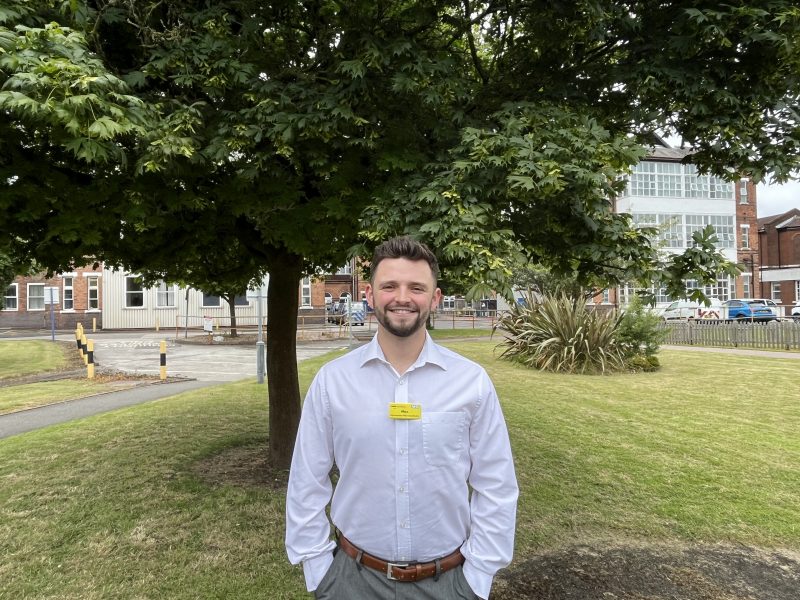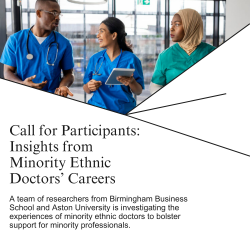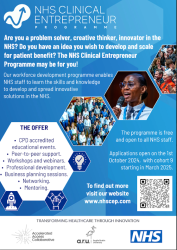Monthly archives: July 2024
Financial Improvement Programme: Small things can make a big difference
As you know, our financial improvement programme is not just about saving money, it’s about reviewing how we work to see if any processes can be improved.
One of the areas the financial improvement programme has been looking at the productivity and efficiency of our theatres.
Did you know that the Trust receives income for every patient we operate on?
So, if we see more patients? We receive more money, which of course helps our overall aim of reducing our deficit.
Currently, operating lists are compiled by the booking teams and sent to surgeons for sign off. This process does not enable the teams to respond to questions, or comments raised by surgical teams when they review the operating lists in advance.
This leads to an inefficient list order or re-order, especially when patients are scheduled at short notice due to cancellations, or surgical teams ask for additional equipment when reviewing notes or images.
The team set about coming up with a solution for this, and proposed a new two-way communication system, so that the booking team can reply directly, and the surgeon is alerted to any queries via an e-mail.
This will lead to less on the day cancellations and allow us to see more patients – reducing our waiting times and improving the patient experience – as well as the all-important extra income.
This has been tested and is now set to be rolled out across surgery in August. Thank you to everyone who has worked hard on this project – a great example of how a small fix can have a really big impact.
If you are interested in finding out more, please contact cris.knill@nhs.net, siten.roy@nhs.net, manoj.veettil@nhs.net or markwhitehouse@nhs.net
Remember: Your idea could be the next thing that makes a real difference – submit them here or contact swbh.recoverypmo@nhs.net.
Dump the junk! – Your move planning reminder

Recently, HCR helped us to deliver a successful mock move week. As our move to Midland Met draws closer, one thing they are continuously reminding teams to do is remove as much unnecessary clutter as possible. Some teams will receive updated equipment that has already been placed at the new hospital, so there is no need, or room, for duplicates.
Check out all their top tips for move planning, here.
My part in Midland Met – Meet Max Newbould

The next in our My Part in Midland Met series, is with MMUH Programme Delivery Manager, Max Newbould. Having joined the Trust 5 years ago, you may have seen Max at City or Midland Met. He started as an apprentice in business administration, involving simulation-based medical education as a Simulation Technician. With a desire to work on projects, he later became the Improvement PMO Coordinator in the Improvement Team for the Midland Met project. Now, Max is the Programme Delivery Manager for the Fundamentals of Care Programme.
Max explains more about his role. “I support the 16 main project areas within the Fundamentals of Care programme. This involves assisting the triumvirate leads in achieving the agreed objectives before we move into Midland Met, this October. I also work on mitigating risks, hospital standardisation, Rhythm of the Day and implementing digital dashboards to display ward-level metrics.”

Naturally, there are many things that project members can do to prepare for the move. For Max this primarily involves collaborating with his team and key stakeholders. “We want to ensure we are all aligned with working towards shared common goals and prioritising the right work at the right time.”
Max continues and acknowledges the support of his colleagues. “In addition to the hard work of our Comms team and Induction team, I have shared my knowledge with colleagues to spread the word about the new hospital, to reassure and ready people for the new ways of working.”
Midland Met has shaped Max’s role through the array of workstreams involved. “As the Fundamentals of Care Programme is a five-year plan, my role is shaped through working on the many different areas it covers. This includes environments that are clinically optimised, delivering harm-free care and digitally transforming the current way of working so it is more technologically advanced.”
Unsurprisingly, a new hospital brings an enormous amount of benefit to colleagues and patients. Max explains what he feels is the biggest benefit. “Collaboration and synergy are essential for the wealth of experience and talent within our organisation. Merging our emergency services and other teams under one roof, will allow us to work together to care for our local community, break any outstanding cultural divide, align towards achieving the Trust’s strategy, and become the best-integrated care organisation for both our patients and colleagues.”
Max praises the hospital since visiting. “I have been lucky enough to visit Midland Met a handful of times and I’m massively impressed with the progress. From a grey building site to a colourful and modern hospital, Midland Met will provide so much potential as an exciting opportunity for our Trust. It will most definitely be an inspiring workplace.”
Security Reminder: Stay safe at work
Unfortunately, there have been reports of multiple security incidents at Sandwell where colleagues personal items have been stolen.
Whilst travelling around our sites we encourage staff to ensure that all personal belongings are secured safely to prevent any opportunity for theft.
Staff ID Cards: It’s your responsibility to ensure you always retain and are in possession of your swipe card whilst at work. Each member of staff is required by Trust policy to always have their ID card with them. If you have lost your Staff ID card or fob, this must be reported immediately to remove your current access and prevent any intruders entering our Trust. You can do this by emailing swbh.idbadgerequests@nhs.net
Tailgating: Swiping people in could risk unauthorised access to patient data, staff across the Trust have the right to stop and ask someone for proof of staff ID before they enter your ward or department.
Leaving windows open in the summer: It’s vital to ensure that all windows, doors are shut before leaving for the day if it is safe to do so. If you are unable to or are concerned of the security of your department, please contact the security team.
If you feel unsafe at work or notice any suspicious behaviour within your ward or department and require security, please contact the security team:
- City Security – 0121 507 4133
- Sandwell Security – 0121 507 3163
Note: In an emergency you should always call the police on 999. You can also call the security team on any internal phone on ext. 2222.
Trust board meeting – 10 July
The Trust board meeting on Wednesday, 10 July, will be held in person in the conference room in the Sandwell Education Centre from 10am – 1pm.
Should you have a question for the board ahead of one of the meetings, please email your question to daniel.conway4@nhs.net putting “Public Trust Board Question” in the subject field of your email.
24 hour spin-relay in aid of Your Trust Charity

 Our Physiotherapy colleagues are hosting a 24-hour ‘Spin relay ‘in aid of Your Trust Charity this September to celebrate International Physical Therapy Day.
Our Physiotherapy colleagues are hosting a 24-hour ‘Spin relay ‘in aid of Your Trust Charity this September to celebrate International Physical Therapy Day.
The event will run from 3pm Friday 6 September to 3pm Saturday 7 September.
To make this event successful, we are calling for colleagues or teams across the organisation to get involved! You can sign up to ride for one hour, two hours or even 30 minutes, it’s completely up to you.
We just have one aim, keeping the wheels moving!!
To register, please email paulrees@nhs.net with your chosen time slot. All registrations must be completed by Friday 16 August.
If you would like to donate to Your Trust Charity and support your colleagues, you can do so here.
Call for participants: insights from ethnic minority doctor’s careers

A team of researchers from Birmingham Business School and Aston University are conducting research on how ethnicity impacts how ethnic minority doctors progress through the stages of a medical career in the UK. The research team has developed a blog about the study which you can read here.
What’s involved?
- The team will hold confidential interviews with ethnic minority medical doctors currently practising medicine in the UK, who were trained in the UK or overseas, who are at any career stage, and who are from any medical speciality. The interviews will explore their medical career in the UK.
- Interviews will normally last about an hour and can be conducted face-to-face, on the phone or online (Teams or Zoom).
- Interviewing doctors from February to September 2024.
- The findings from this study will be used to raise awareness of the enablers and constraints to the career progression of ethnic minority doctors and to improve the career support offered to them
If you are interested in finding out more or in participating, please contact Dr Ashok Patnaik
at a.patnaik@bham.ac.uk or 07974872181.
You can also find out more about the project here
National Day of Memory for victims of honour based abuse – 14 July
The national day of memory for victims of honour-based abuse is observed on Sunday, 14 July, in memory of Shafilea Ahmed, a young woman who lost her life in 2003 due to her refusal to accept marriage.
What is Honour-Based Abuse?
Honour-based abuse (HBA) can be described as a collection of practices which are used to control behaviour within families or other social groups to protect perceived cultural and religious beliefs and/or honour.
Such abuse occurs when perpetrators (who can be one or many including: parents, siblings, grandparents, uncles, aunts, cousins, community members), perceive that a relative has shamed the family and/or community by breaking their honour code.
This type of abuse can happen to anyone. It affects people of all ages but often begins early in the family home. Girls and women are particularly at risk of honour-based abuse, however boys and men are also affected and may be at heightened risk if there are factors around disability, sexuality and mental health.
It is a violation of human rights. There is no religious basis for HBA and forced marriage; they are widely condemned by all religious faiths and communities.
[embedyt] https://www.youtube.com/watch?v=kHHxF6ahxEg[/embedyt]
What are the types of behaviours which may be perceived as breaching the honour of family and/or community?
- refusing an arranged marriage
- relationships outside marriage
- relationships outside the approved group
- ‘inappropriate’ make-up or dress
- loss of virginity,
- running away,
- ideological differences,
- westernisation,
- pregnancy outside of marriage,
- homosexuality,
- reporting/fleeing domestic abuse
- coercive control or forced marriage
- leaving an arranged marriage
- alcohol or drug use.
Possible indicators/warning signs of HBA
If you’re concerned about someone being abused, here are some warning signs to look out for:
- Broken communication between a potential victim and friends, absence from education (or training/workplace).
- Criticism of a potential victim for ‘western’ adoption of dress or make-up (either directly or indirectly).
- Excessive restrictions in leaving the house or being accompanied outside the home in older children.
- Depressive or suicidal tendencies in an otherwise happy person.
‘One Chance’ rule
One Chance rule indicates that professionals need to be aware they may only have one chance to speak to a potential victim, and thus, they may only have one chance to save a life.
Professionals must not approach the family or community leaders, share any information with them or attempt any form of mediation. In particular, members of the local community must not be used as interpreters.
Report it: Is someone in immediate danger? Call 999.
For advice and support, you can contact:
- Safeguarding Children: Email: swbh.safeguardingchildren@nhs.net. 0121 507 2844
- Domestic Abuse Nurses/ MASH Health: Email: swbh.mashnurses@nhs.net 0121 569 7223
- Maternity Safeguarding: Email: swbh.maternitysafeguarding@nhs.net. 0121 507 471111
- Hospital Independent Domestic Violence Advisors (IDVA): ED City site 0121 507 4829, Sandwell site 0121 507 3787 swbh.MMUH.domestic-abuse@nhs.net
- Adult Safeguarding Email: Swb-tr.SWBH-Alert-AdultSafeguarding@nhs.net 0121 507 5174
Further information can be found:
What is honour-based abuse? | Metropolitan Police
https://www.roshnibirmingham.org.uk/forced-marriage-honour-based-abuse/
https://blackcountrywomensaid.co.uk/
Department for Health and Social Care Virginity testing and hymenoplasty: multi-agency guidance
NHS Clinical Entrepreneur Programme – Applications open 1 October
 Are you an NHS staff member with a flair for innovation and a vision for improving patient care?
Are you an NHS staff member with a flair for innovation and a vision for improving patient care?
If you have a great idea but need support to bring those ideas to life, the NHS Clinical Entrepreneur Programme (CEP) could be for you!
Join a pioneering community of forward-thinkers in the NHS through the CEP. This transformative programme, delivered by Anglia Ruskin University and part of the Accelerated Access Collaborative (AAC), stands as the largest entrepreneurial workforce development initiative of its kind.
The programme is free, lasts 12 months and is open to all NHS staff (both clinical and non-clinical). It provides learning, opportunities and experiences through which entrepreneurs develop the commercial skills to accelerate their innovations, in turn helping to transform patient care, as well as providing them with the entrepreneurial knowledge that will help them in their day jobs. A dedicated programme on how to build a start-up or develop an intrapreneurial idea is delivered as a series of CPD-accredited educational events called ‘Pit Stops’, which can be attended either in person or virtually.
Professor Tony Young OBE, National Clinical Lead for Innovation at NHS England and Professor of Entrepreneurship and Medical Innovation at Anglia Ruskin University, asserts: “It is truly amazing what can happen when you empower the NHS’ most valuable asset: its staff and encourage them to push beyond the bounds of possibility.”
Examples of innovations through the programme include communications solutions to help reduce health inequalities, smartphone otoscopes to look inside the ear, a time bank to support the exchange of skills and ideas, medical devices to support children with hearing issues, and drones designed to carry medical supplies between NHS sites. Other innovations include pathway improvements, social enterprises, and mental health support innovations.
Suzanne Vernazza, Pelvic Health Physiotherapist, Founding Director of Know Your Floors and NHS Clinical Entrepreneur, shares: “I never thought I was an entrepreneur or an influencer, but over the past two years on my journey, I have learned that through self-belief and support through the programme, I can be those things. I have been supported by fellow Clinical Entrepreneurs and mentors, who have given me practical advice and feedback. The sessions on the programme have also inspired me, as hearing fellow entrepreneurs’ stories and being able to network with over 1,000 other passionate individuals is extremely supportive and has helped me to make links to push forward.”
Boasting a network of over 1200 entrepreneurs and over 300 mentors and industry partners, the CEP is more than just a programme, it is a community of likeminded individuals and industry experts. It has created a space where NHS staff can develop their innovation or ideas without having to leave the health service. The programme offers mentoring, bespoke commercial education and learning, customer matching, resources, and development tools.
We invite all NHS employees with a promising concept, regardless of its developmental stage, to apply for this extraordinary opportunity.
Applications will open from Monday, 1 October – Thursday, 24 October.
For more information and eligibility: Visit www.nhscep.com or contact us at: cep@aru.ac.uk
Come to the Lyng and develop our financial improvement plan: 16 July
Have you got some ideas that could help improve our financial performance?
Do you have some thoughts on how we can improve our productivity?
How about some ideas for cost improvement projects?
Then we want to hear from you – often people working on the front line have the best ideas and this is your opportunity to have your voice heard.
Come along to our next workshop on Wednesday 16 July, 9am – 1pm, meeting room 4, 3rd floor, the Lyng.
These sessions are an opportunity for colleagues from across all areas of the organisation to come together and share their ideas for our financial improvement programme.
For more information, please email swbh.recoverypmo@nhs.net.
We look forward to meeting you all on what will be an interesting and productive day.
Can’t make the session? You don’t need to wait until a workshop to submit your thoughts and ideas – you can tell us anytime! Remember – people on the frontline often have the best ideas – so please do come forward and let us know yours. No idea is a bad idea.
You can submit your ideas via this online form: https://www.surveymonkey.com/r/financialimprovement
← Older items Newer items →